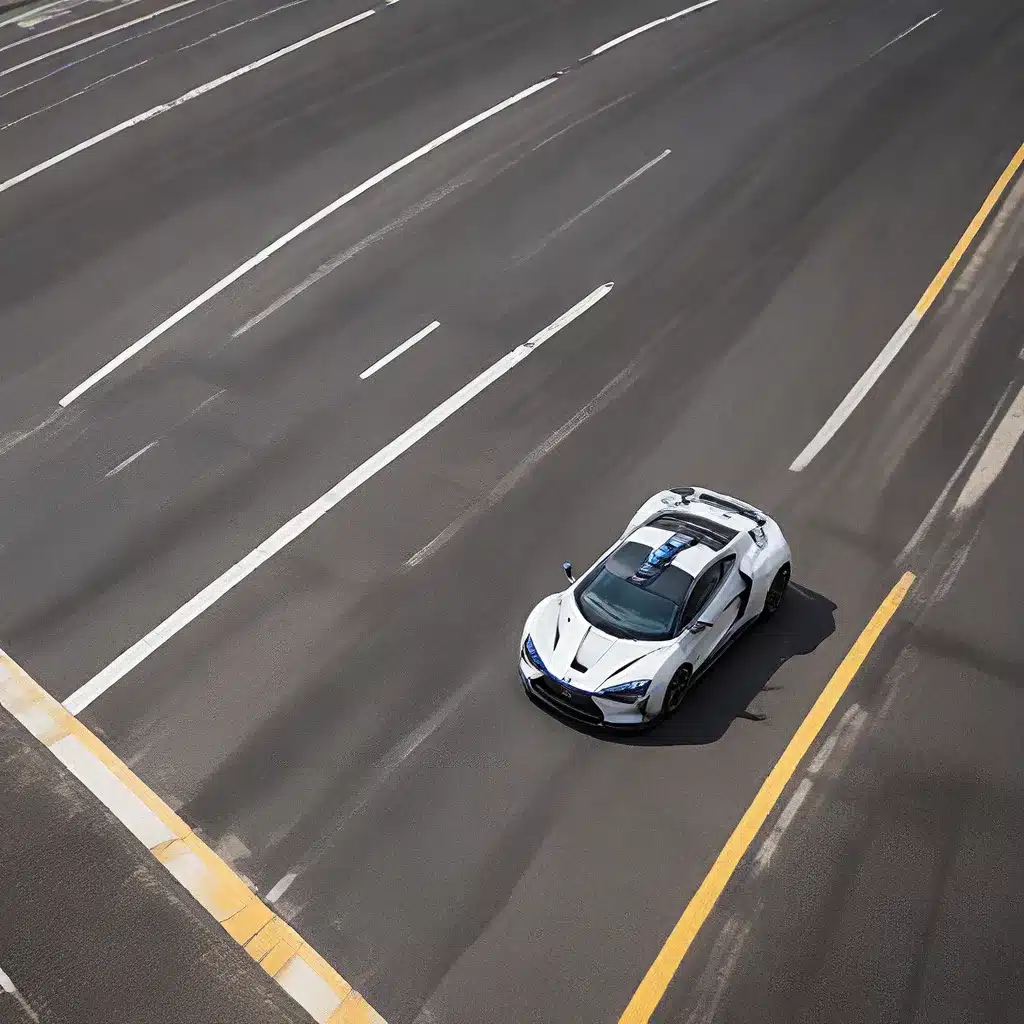
The Importance of Sensor Calibration for Autonomous Systems
Sensor calibration is a critical component in the development and deployment of autonomous systems, such as self-driving cars, drones, and robotics. These systems rely on a complex array of sensors, including cameras, LiDAR, radar, and inertial measurement units (IMUs), to “see” and understand their surroundings. For these systems to function safely and reliably, the sensors must be carefully calibrated to work together seamlessly, minimizing errors and ensuring accurate data integration.
According to Deepen AI, a world leader in calibration tools for multi-sensor systems, sensor calibration is essential for ensuring the accuracy, reliability, and safety of autonomous vehicles and driver assistance systems. By optimizing sensor performance, reducing errors, and enabling the seamless integration of sensor data, calibration plays a crucial role in the critical decision-making process for real-time driving scenarios.
The Challenges of Sensor Calibration
Traditionally, sensor calibration has been a complex, time-consuming, and highly specialized task, often requiring the expertise of senior engineers. The process typically involves the use of specialized equipment, complex mathematical models, and a deep understanding of the underlying sensor technologies and their interactions.
Until now, sensor calibration has been the kind of task that mixed art and science and required the time of the most senior and experienced engineers on any team. This has presented a significant bottleneck in the development and deployment of autonomous systems, as the time and resources required for calibration can be a major barrier to scaling and iterating on these technologies.
Advancements in Sensor Calibration Solutions
Fortunately, recent advancements in calibration technologies have helped to address these challenges. Deepen AI, for example, has developed a suite of calibration tools that streamline the process and make it more accessible to a wider range of users.
Deepen AI’s advanced calibration solution, Deepen Calibrate, provides May Mobility, a leader in autonomous vehicle technology, with an easy-to-use system that allows them to confidently, quickly, and reliably calibrate the sensors in their fleet. By using Deepen Calibrate, May Mobility can decrease the time and effort required for calibrating the sensors on their fleet from hours to minutes, significantly improving their calibration efficiency.
Deepen Calibrate’s single-shot calibration technology minimizes effort and improves calibration efficiency, while also helping May Mobility annotate large volumes of sensor data. This enables May Mobility to prioritize safety and reliability with every autonomous vehicle they deploy, ensuring their systems can “see” the world around them accurately and respond accordingly.
The Benefits of Accurate Sensor Calibration
The benefits of accurate sensor calibration in autonomous systems are numerous and far-reaching. By ensuring that sensors work together seamlessly, calibration helps to:
-
Enhance Safety: Accurate sensor calibration is crucial for the safe operation of autonomous vehicles, drones, and robotics. It helps to minimize errors and ensure that these systems can make informed, real-time decisions that prioritize the safety of users, passengers, and the surrounding environment.
-
Improve Reliability: Properly calibrated sensors can provide more reliable data, reducing the risk of system failures or malfunctions that could have serious consequences. This is particularly important in mission-critical applications, such as emergency response or disaster relief operations.
-
Increase Efficiency: Streamlined calibration processes, like those offered by Deepen Calibrate, can significantly reduce the time and resources required for sensor calibration. This, in turn, can accelerate the development, deployment, and iteration of autonomous systems, allowing for faster innovation and time-to-market.
-
Ensure Data Quality: Accurate sensor calibration is essential for maintaining the integrity and quality of the data generated by autonomous systems. This data is crucial for training machine learning models, validating system performance, and making informed decisions.
-
Facilitate Scalability: As autonomous systems become more widespread, the ability to quickly and reliably calibrate large fleets of sensors will be a key factor in enabling scalable deployments. Calibration solutions that can streamline and automate this process will be crucial for meeting the growing demand for these technologies.
The Future of Sensor Calibration in Autonomous Systems
As the use of autonomous systems continues to grow, the importance of sensor calibration will only become more critical. Sensor networks and IoT technologies are enabling increasingly sophisticated and interconnected systems, all of which rely on accurate, reliable sensor data to function effectively.
Looking ahead, we can expect to see further advancements in calibration technologies, with a focus on improving speed, precision, and accessibility. Deepen AI’s calibration suite, for example, is just one example of how innovators are working to solve the complex challenges of sensor calibration in the age of autonomous systems.
As these technologies continue to evolve, we’ll likely see a growing emphasis on automated, real-time calibration processes that can adapt to changing environmental conditions and sensor configurations. This will be essential for ensuring the long-term reliability and safety of autonomous systems as they become more deeply integrated into our daily lives.
Conclusion
Sensor calibration is a critical component of autonomous systems, ensuring the accuracy, reliability, and safety of these technologies. As the use of autonomous vehicles, drones, and robotics continues to grow, the need for efficient and accessible calibration solutions will only become more pressing.
Innovative companies like Deepen AI are leading the way in developing calibration tools that streamline the process, reducing the time and resources required while maintaining a high degree of precision. By empowering a wider range of users to calibrate their sensor systems, these advancements are helping to accelerate the development and deployment of autonomous technologies, unlocking their full potential to transform industries and improve our daily lives.
As we look to the future, the continued advancement of sensor calibration solutions will be a key driver in the widespread adoption and safe operation of autonomous systems, paving the way for a more interconnected, efficient, and sustainable world.